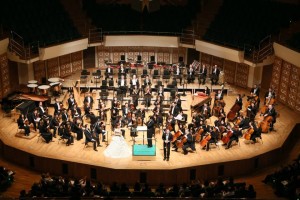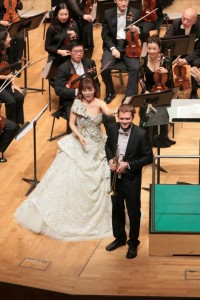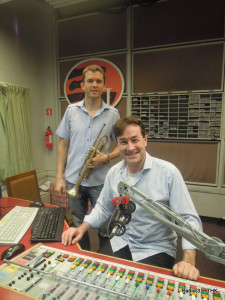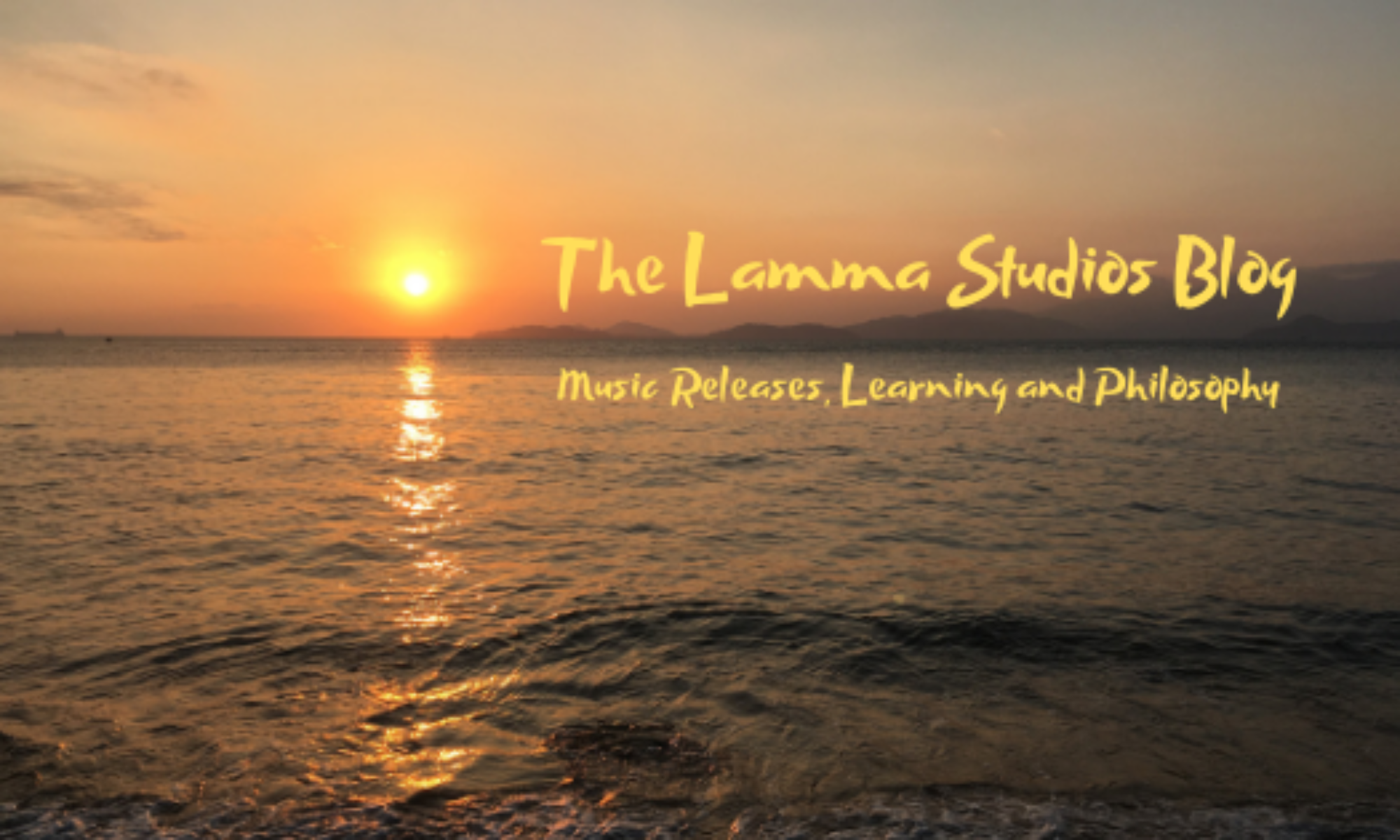
This is a reprint from Lamma Studios Director Joshua MacCluer from February 2014.
In early February I made my debut as a soloist with the Hong Kong Philharmonic in a performance of Handel’s Let the Bright Seraphim partnered with the terrific soprano Sumi Jo. It was a very enjoyable musical experience for me and I learned a lot from working with her.
Sumi Jo is a fabulous performer. Her voice is beautiful, clear, bright, and extremely agile. She has very high artistic standards as she has worked with the biggest names in classical music for the last 30 years. Her communication and connection with the audience is remarkable. She is also beautiful and wears striking stage outfits.
People love Sumi Jo. So do I. She’s really great. After the Handel, she went on to sing an evening of songs and had the entire audience eating out of the palm of her hand all night. At the end of the program she sang five separate encores, with cheering and standing ovations all around.
This is quite remarkable, and was the first time in a year and a half I have seen such a delirious audience reaction in Hong Kong. In Saint Louis the audience usually awards a standing ovation after concerts but in Hong Kong almost never, yet last weekend Sumi had them on their feet and cheering over and over.

That, my friends, is star power. There is something about her, or actually many things, that make people (especially in Korea) just go crazy. Some people have casual fans who buy their records occasionally. Others have super fans who would follow them to the ends of the earth, like many would follow Sumi Jo.
Stardom is an interesting and elusive quality. In this day and age, people’s star often shines brightly yet briefly. I don’t consider one hit wonders and 15-minutes-of-famers to have star power. True star power has staying power and transcends momentary fads. Those with true star power stand the test of time and attract new fans as their careers go on, like Elvis Presley, Marilyn Monroe, Frank Sinatra, or Sumi Jo.
I had dinner with Sumi after the shows were over and asked her what her values were; what was the most important to her. Her answer was succinct and made a lot of sense.
1: Technique: “The technique must be there, we are technicians, and there is no substitute for proper use of your instrument.”
No argument on that point from me.
2: Musicality: “The musicianship and phrasing come from deep within and some people have it and some people don’t. It is an inherited gift at birth.”
This one I do not agree with, I think that phrasing is mostly a matter of a lifetime of playing, studying, and listening to music. Sumi’s musicianship perhaps does come from God, but mine is something I picked up along the way.
3: “Give yourself. You can’t hide anything from the audience. Give 100% yourself, as much as you can to them, and they (assuming you have #1 and #2) will accept you, follow you, and love you. Give give give, until you are exhausted. Then give more.”

She insisted on having the trumpet in this picture.
This last one has really stuck with me and I have been thinking about it since she said it. It’s quite a simple idea, really, but you see its effects when Sumi Jo performs. She goes out on stage and bares her soul to the audience, including showing weakness, and there is a certain frailty to her when she performs. She does not throw up a diva force field of invulnerability, rather she appears actually quite vulnerable.
To show vulnerability is necessary if you want true honesty in art and life. Only when we show them our weakness can true acceptance come from someone else. Until that point we are still just posing, sending a representative to communicate for us instead of our true selves.
This is one of the things I learned from playing and talking to Sumi Jo. I now realize that I am still thinking while I am playing about the technical issues involved and trying to avoid mistakes. Trying to avoid mistakes means self-censoring, and that is hiding, not giving. I will be working on this going forward.
Also that weekend I had the opportunity to stop by the RTHK studio for a quick interview on Morning Brew with Phil Whelan. The video is here of our interesting and far ranging discussion which covered the following topics:
Sumi Jo
Versatility in life and art.
History of the trumpet as solo instrument.
Mozart’s lost trumpet concerto.
The trumpet vs the cornet.
Cornet soloists in 1900’s USA and Theron McClure’s time playing with Bohumir Kryl in the 1930s.
Josh’s musical family.
The Carnival of Venice.
Vibrato as a natural tone enhancer and tension relaxer.
The neuroscience of learning.
Practicing for Sound
Practicing at 95% or above.
Repetition. Repetition.
Talent almost does not exist
Mozart was not a prodigy
Let the Bright Seraphim from Sampson.
Sad Sad City.


